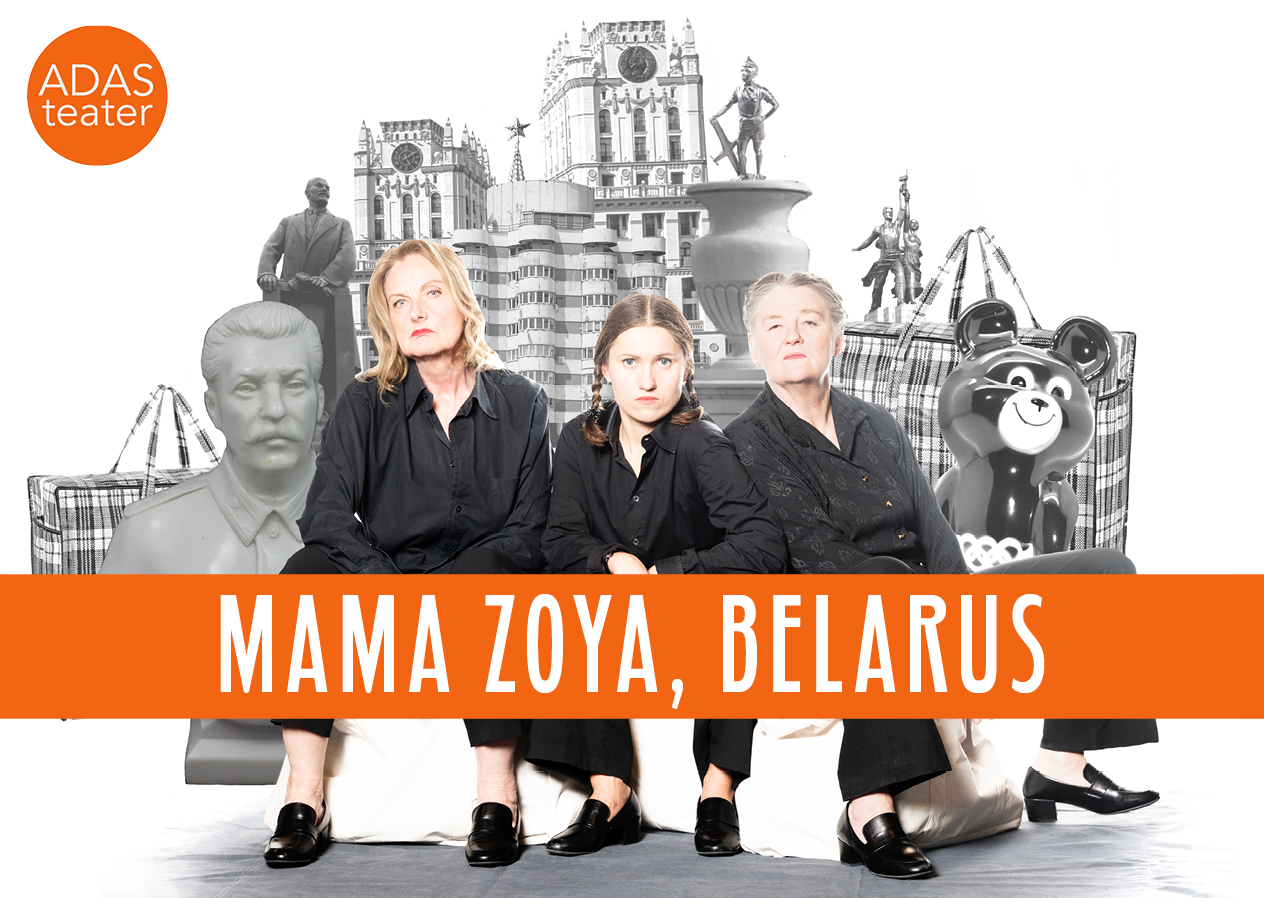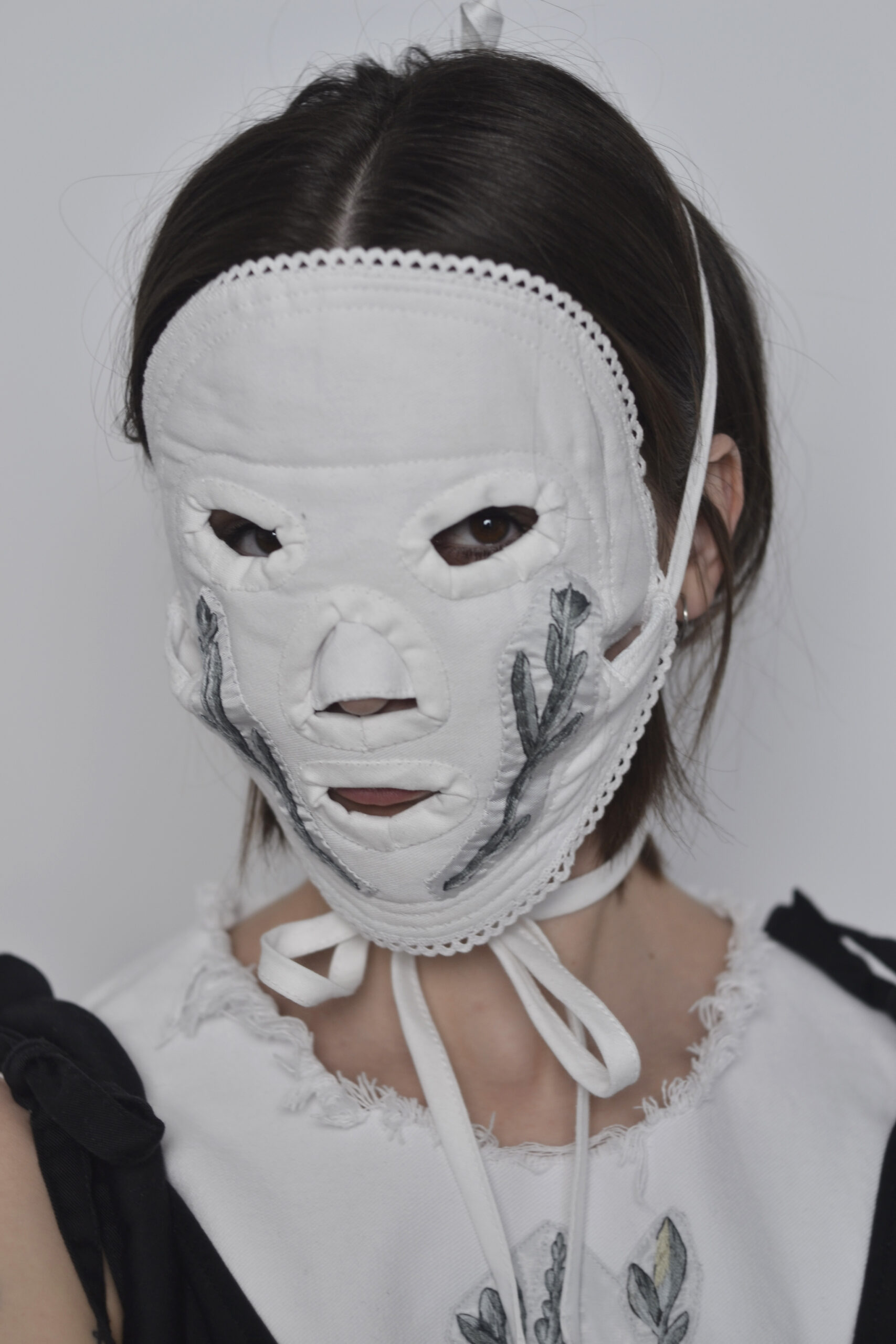Work Conditions

PROJECT ZOYA, OR HOW I BECAME THE OTHER
Aksana Haiko •
Director Aksana Haiko talks about a joint theater project with the Swedish theater ADAS. The project Mama Zoya, Belarus was based on the life story of the director’s mother. Due to differences in views on the work, Aksana had to leave the project. In the text, she analyzes what happened through the lens of postcolonial studies.

Reply to “PROJECT “ZOYA”, OR HOW I BECAME THE OTHER”
Fia Adler Sandblad •
Fia Adler Sandblad is the artistic director of ADAS Theatre, which she started more than thirty years ago at Konstepidemin in Gothenburg, Sweden. Here, she responds to Aksana Haiko’s text about their joint work in 2021 – 2023.

‘- HOW ARE YOU DOING?’
Tasha Kotsuba •
‘Hi, it’s okay. It’s been quiet here, no bombing yet, and only when we hear sirens do we hide in the cellar. Don’t worry, everything will be alright soon.’ My name is Tasha – I am a Belarusian artist, and I am currently in Ukraine. It’s been snowing today, and that makes me happy because […]

GRASSROOTS SOCIOLOGY, DATA HIERARCHIES, AND THE CHALLENGES OF POSING RELEVANT QUESTIONS IN AND ABOUT BELARUS
Andrey Vozyanov •
For years, the Lukashenka regime has been suppressing credible statistics on public opinion and independent sociological reports. As a result, the data on Belarus obtained by local grassroot initiatives, independent researchers, and established institutions both within and outside the country are severely distorted.
In this essay, Andrey Vozyanov outlines how sociological work is hindered on many levels in Belarus, and describes how various groups in the society try to compensate for this deficiency. Vozyanov also addresses the marginalization of the leftist voices within the international public debate on the subject and presents arguments for more flexible and sensitive ways to approach empirical data given the major challenges that sociological work faces in the country.

BELARUSIAN ENTROPY: AS IRREVERSIBLE AS IT IS HARD TO PUT THE TOOTHPASTE BACK INTO A TUBE
Nadya Sayapina •
“My personal story is a simple and, alas, a widespread example of the regime repressions, described by the new expression “If you were not in prison, then you are not a Belarusian”. I was sentenced to 15 days for participation in an unauthorized event (Article 23.34). … My imprisonment led to an acquaintance with women of different ages, characters, spheres of activity and interests, forms and manifestations of their civil position.”

PRODUCTION DRAMA: LABOR AND LAZINESS OF ARTIST IN BELARUS
Aleksei Borisionok •
In this essay, curator and writer Aleksei Borisionok addresses labor structures and working conditions within the artistic field of the USSR and Eastern Europe, and continues with a closer look at Belarus, focusing on its outrageous “parasitism tax” and the artistic reactions to it.

LAZY SIMULATOR
Dzina Zhuk • Nicolay Spesivtsev • Olia Sosnovskaya •
The (non)work group presents an ultimate guide into the pleasures of laziness, radical idleness, non-work, and unproductivity. Together with the invited experts (n i i c h e g o d e l a t, Welcome to the DollHouse, Mila Pavicevic and Aleksei Borisionok) “Lazy simulator” assembles techniques, exercises and methods on how to waste time in the most political way.

CURATORS, LIBRARIANS, SOCIAL PARASITES: OUR LEGAL STATUS AS CLARIFIED BY A LAWYER
Alena Chekhovich •
Alena Chekhovich, a lawyer from a Belarusian human rights organization Human Constanta, examines the Culture Code in detail, discussing in simple terms the concepts of cultural and creative workers, registration and taxation of the activities of creative workers, the process of obtaining a certificate of a creative worker and much more.

IN SEARCH OF A STATUS
Uladzimir Hramovich •
Belarusian artist Uladzimir Hramovich talks about his experience in obtaining the official status of a cultural worker – a forced reaction to the Belarusian law on “not employed in the economy”. The artist describes the process of collecting documents for the commission, the committee meeting at the Ministry of Culture and shares his reflections upon the state of Belarusian contemporary art as well as his civic position.

WHY I, AS AN ARTIST, LOVE TO COLLABORATE WITH RADICAL, SELF-ORGANIZED INITIATIVES
Frida Klingberg •
Using her project Sauna for the Unemployed as an example, Swedish artist Frida Klingberg talks about her experience in working with self-organized initiatives, comparing and contrasting it to the traditional art world hierarchy, which praises individualism.